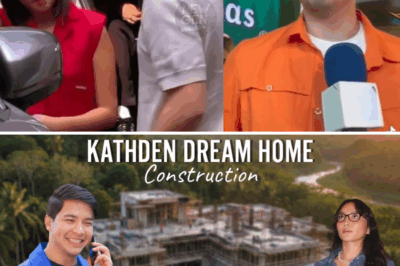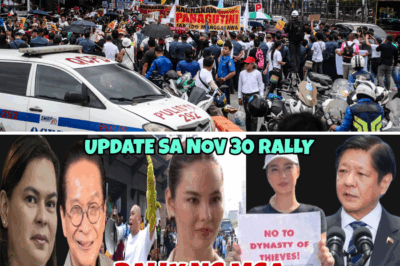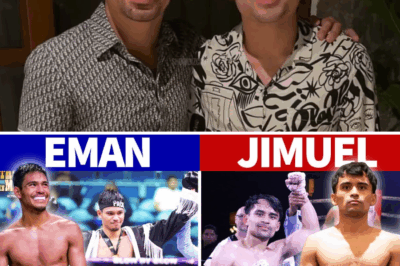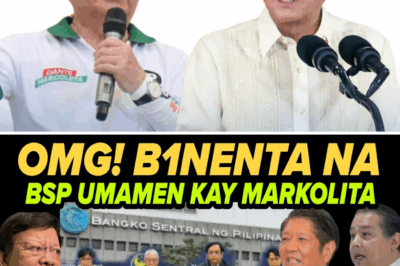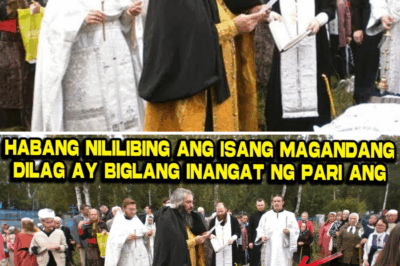The halls of the Philippine Senate have once again become a battleground, not of legislation but of allegations, accusations, and political maneuvering. At the center of the latest controversy is Representative Rodante Marcoleta, whose relentless attacks on Senator Panfilo “Ping” Lacson have drawn public attention and sparked intense debate. The question that has captured headlines is deceptively simple: Is Senator Lacson overstepping his role by reviewing Senate CCTV footage to track a witness? The answer, as political analysts and social media commentators argue, is far more complex.
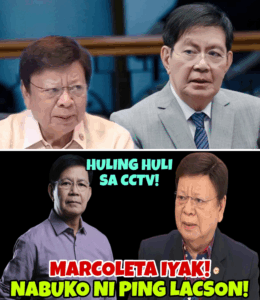
On October 31, 2025, content creator “Batang Maynila Toys” addressed this contentious issue in a widely viewed video. Speaking from Hong Kong, where he was visiting Disneyland, he quickly pivoted from travel updates to the politically charged drama unfolding in Manila. Marcoleta, he explained, has persistently criticized Lacson, questioning his every move on social media and repeatedly giving interviews to discredit the seasoned senator. Some speculate that Marcoleta’s attacks stem from envy or resentment after being removed from the Blue Ribbon Committee, while others suggest an unusual obsession with monitoring Lacson.
The controversy intensified when Marcoleta publicly questioned whether Lacson’s actions in obtaining CCTV footage to track Orly Gotesa, a surprise witness, constituted appropriate senatorial work. Ironically, Marcoleta admitted that his own staff was tasked with picking up Gotesa at the Senate entrance. The public—and the video speaker—saw this as a glaring contradiction. How could Marcoleta criticize Lacson for verifying witness movements while simultaneously orchestrating the same process?
The speaker’s analysis did not stop at hypocrisy. He pointed to past collaborations, particularly the role of Gotesa and her alleged handler, Defensor, in previous political events, including the ABS-CBN franchise denial. Gotesa had also testified against former House Speaker Martin Romualdez and Party-list Representative Saldico, raising questions about her impartiality. Allegations of falsified affidavits—highlighted by a notarization dispute—fueled suspicions that she might be a “planted witness” or tanim witness, further undermining her credibility.
Public sentiment, the speaker noted, strongly favors Lacson’s approach. Many praised his investigative skills, emphasizing that his experience as a law enforcement professional and chairman of the Blue Ribbon Committee equips him to discern truth from manipulation, regardless of his lack of a formal law degree. One comment read, “Senator Lacson was an experienced investigator. He has skills and knowledge which a lawyer doesn’t have.” This perspective resonates widely among viewers who see thorough, evidence-based investigation as essential in a political climate rife with questionable testimonies.
Marcoleta’s apparent fear of CCTV footage has also raised eyebrows. “If you have nothing to hide, why are you afraid?” the speaker rhetorically asked, echoing public sentiment. This question struck at the heart of the controversy: transparency versus obfuscation. While Lacson relies on verifiable evidence, Marcoleta seems entangled in allegations that hint at concealment, casting doubt on his motives and credibility.
In dissecting the situation, the speaker emphasized that Lacson’s methods—systematic, meticulous, and evidence-driven—contrasted sharply with Marcoleta’s reliance on unverified witnesses. The debate is not merely procedural but deeply political, reflecting broader questions about ethics, accountability, and power within the Senate. Public engagement on social media underscores the stakes, with viewers actively discussing the implications of planted witnesses and the integrity of senatorial investigations.
Concluding his commentary, the speaker noted that Marcoleta’s accusations are largely unwarranted. Lacson’s skills as an investigator are undeniable, and his commitment to evidence-based procedures strengthens public confidence in Senate oversight. The speaker’s parting remark was both sardonic and pointed: if CCTV footage genuinely bothers Marcoleta, perhaps he should consider removing it entirely—a comment that underscores the suggestion that fear, rather than duty, motivates Marcoleta’s protestations.
As the political drama unfolds, observers are reminded of the crucial role of transparency, accountability, and critical thinking in public service. The Lacson-Marcoleta confrontation is more than a personal dispute; it serves as a lens through which the public can scrutinize political behavior, witness credibility, and the ethical obligations of elected officials. Amid social media debates, viral videos, and heated commentary, one lesson stands clear: evidence matters, and attempts to obscure it rarely go unnoticed.
News
Ang High-Tech na Mansyon ni Alden: Bakit Ang Dream House ng Aktor ay Literally Katabi ng Bahay ni Kathryn Bernardo
Ang mundo ng showbiz ay isang entablado kung saan ang pangarap ay nagsasaling-wika sa katotohanan, at ang pag-ibig ay madalas…
Araw ni Bonifacio 2025: Ang Trillion Peso March, Pagtawag ni Catriona Gray sa Pananagutan, at Ang “Under Control” na Gulo sa Mendiola
Ang Araw ni Bonifacio, na ginugunita tuwing Nobyembre 30, ay tradisyonal na ginagamit bilang plataporma ng sambayanan upang ipahayag ang…
Ang Laban ng mga Mana: Eman vs. Jimwel Pacquiao – Sino sa mga Anak ni Manny Ang Hahawak sa World Title ng Boxing
Sa mundo ng professional boxing, ang pangalan ni Manny “Pacman” Pacquiao ay hindi lamang isang apelyido; ito ay isang simbolo…
Ginto, Bilyong Insertions, at Ang ICC Drama: Ang Naglalagablab na Katotohanan sa Likod ng Marcos Administration’s Sekreto
Ang pulitika sa Pilipinas ay muling nagliliyab, hindi dahil sa isang kakaibang celebrity gossip, kundi dahil sa mga seryoso at…
Ang Second Life sa Kabaong: Paano ang Isang Pari, na Dating Combat Medic, ang Nagbunyag ng Drug Smuggling at Nagligtas ng Buhay sa Gitna ng Libing
Ang buhay ay madalas na punong-puno ng pagbabago, at ang paghahanap ng layunin ay kung minsan ay matatagpuan sa mga…
Ang No-Fail Test ng Kabutihan: Paano ang Helicopter Crash ang Nagbunyag sa Tunay na Ugali ng Kasintahan at mga Empleyado ng Bilyonaryo
Ang tunay na yaman ay hindi nasusukat sa dami ng ari-arian o sa bigat ng bank account; ito ay matatagpuan…
End of content
No more pages to load

